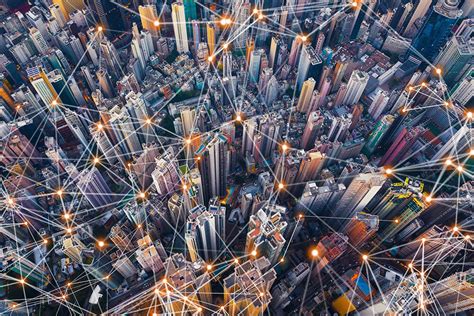Cities are the hubs of human activity, innovation, and progress. As the world becomes increasingly urbanized, cities face numerous challenges in providing a sustainable, efficient, and livable environment for their citizens. Fortunately, the rapid advancements in clean technology (cleantech) are transforming cities, making them smarter, more sustainable, and better equipped to tackle the complexities of urbanization.
The importance of cleantech innovations in cities cannot be overstated. By embracing these innovations, cities can reduce their environmental footprint, improve public health, enhance quality of life, and drive economic growth. In this article, we will explore five cleantech innovations that are transforming cities and making them more livable, sustainable, and resilient.
Smart Grids and Energy Management

One of the most significant cleantech innovations transforming cities is the adoption of smart grids and energy management systems. These systems enable cities to optimize energy distribution, reduce energy waste, and promote the use of renewable energy sources. By leveraging advanced technologies such as IoT sensors, data analytics, and artificial intelligence, smart grids can predict energy demand, detect energy losses, and adjust energy supply in real-time.
The benefits of smart grids and energy management systems are numerous. They can help cities reduce their greenhouse gas emissions, improve energy efficiency, and enhance the reliability of their energy infrastructure. Additionally, smart grids can enable the integration of renewable energy sources, such as solar and wind power, into the energy mix, reducing dependence on fossil fuels and mitigating climate change.
Benefits of Smart Grids and Energy Management
- Improved energy efficiency
- Enhanced reliability of energy infrastructure
- Reduced greenhouse gas emissions
- Increased use of renewable energy sources
- Better management of energy demand and supply
Green Buildings and Sustainable Architecture

Green buildings and sustainable architecture are critical components of a city's sustainability strategy. By incorporating green building materials, energy-efficient systems, and sustainable design principles, cities can reduce their environmental footprint, improve public health, and enhance quality of life.
Green buildings can help cities reduce energy consumption, water usage, and waste generation. They can also improve indoor air quality, reduce noise pollution, and enhance the overall comfort and well-being of occupants. Additionally, green buildings can serve as models for sustainable development, promoting the use of renewable energy sources, reducing greenhouse gas emissions, and mitigating climate change.
Benefits of Green Buildings and Sustainable Architecture
- Reduced energy consumption
- Improved indoor air quality
- Enhanced comfort and well-being of occupants
- Reduced water usage and waste generation
- Promotes sustainable development and reduces greenhouse gas emissions
Electric and Autonomous Vehicles

Electric and autonomous vehicles are transforming the way cities move people and goods. By promoting the adoption of electric vehicles, cities can reduce greenhouse gas emissions, improve air quality, and enhance public health. Autonomous vehicles, on the other hand, can improve road safety, reduce traffic congestion, and enhance mobility for the elderly and disabled.
The benefits of electric and autonomous vehicles are numerous. They can help cities reduce their dependence on fossil fuels, mitigate climate change, and improve air quality. Additionally, autonomous vehicles can optimize traffic flow, reduce accidents, and enhance the overall efficiency of transportation systems.
Benefits of Electric and Autonomous Vehicles
- Reduced greenhouse gas emissions
- Improved air quality
- Enhanced public health
- Improved road safety
- Optimized traffic flow and reduced accidents
Waste-to-Energy and Circular Economy

Waste-to-energy and circular economy systems are critical components of a city's sustainability strategy. By converting waste into energy, cities can reduce their dependence on fossil fuels, mitigate climate change, and promote sustainable development.
The benefits of waste-to-energy and circular economy systems are numerous. They can help cities reduce waste generation, promote recycling, and recover valuable resources. Additionally, waste-to-energy systems can provide a reliable source of renewable energy, reducing greenhouse gas emissions and mitigating climate change.
Benefits of Waste-to-Energy and Circular Economy
- Reduced waste generation
- Promotes recycling and recovery of valuable resources
- Provides a reliable source of renewable energy
- Reduces greenhouse gas emissions and mitigates climate change
Urban Agriculture and Vertical Farming

Urban agriculture and vertical farming are transforming the way cities produce and consume food. By promoting urban agriculture and vertical farming, cities can enhance food security, improve public health, and reduce their environmental footprint.
The benefits of urban agriculture and vertical farming are numerous. They can help cities reduce their dependence on industrial agriculture, promote sustainable food systems, and enhance food security. Additionally, urban agriculture and vertical farming can improve public health, reduce greenhouse gas emissions, and mitigate climate change.
Benefits of Urban Agriculture and Vertical Farming
- Enhances food security
- Improves public health
- Reduces environmental footprint
- Promotes sustainable food systems
- Reduces greenhouse gas emissions and mitigates climate change






Gallery of Cleantech Innovations for Sustainable Cities
In conclusion, cleantech innovations are transforming cities, making them more livable, sustainable, and resilient. By embracing these innovations, cities can reduce their environmental footprint, improve public health, and enhance quality of life. We hope this article has inspired you to learn more about the power of cleantech innovations in transforming cities.
Share your thoughts on the role of cleantech innovations in transforming cities. How do you think these innovations can be scaled up to make a greater impact?
What is cleantech?
+Cleantech refers to the use of technology to reduce the environmental impact of human activities. It encompasses a wide range of innovations, including renewable energy, energy efficiency, sustainable agriculture, and waste reduction.
How can cities benefit from cleantech innovations?
+Cities can benefit from cleantech innovations by reducing their environmental footprint, improving public health, and enhancing quality of life. Cleantech innovations can also help cities reduce their dependence on fossil fuels, mitigate climate change, and promote sustainable development.
What are some examples of cleantech innovations for sustainable cities?
+Some examples of cleantech innovations for sustainable cities include smart grids and energy management, green buildings and sustainable architecture, electric and autonomous vehicles, waste-to-energy and circular economy systems, and urban agriculture and vertical farming.
